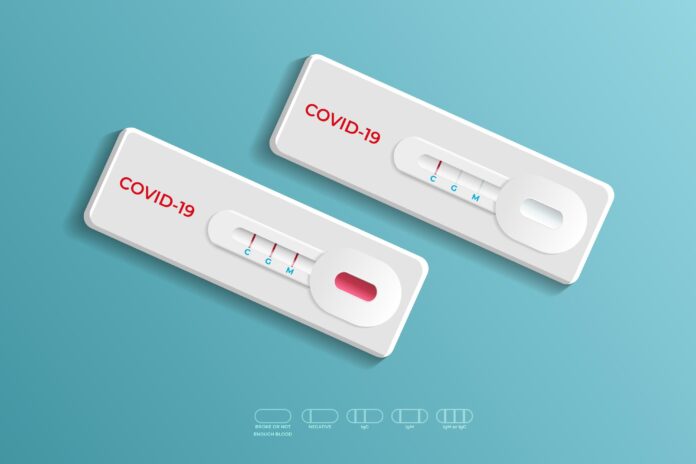A recent statement by the FDA states rapid antigen tests as less sensitive for detecting the Omicron variant.
Although Omicron infections cause mild symptoms and carry a lower risk of hospitalization, the heavily mutated strain has caused a sharp increase in COVID-19 cases across the world. This sharp incline has led to the implementation of strict lockdown measures and border closure worldwide. Moreover, its rapid spread has sparked fears of a new dominant strain taking over the world. Therefore, early detection and prompt isolation of infected individuals remains key in preventing further spread. However, recent data suggests that widely used rapid antigen tests are not as reliable for detecting Omicron.
The current gold standard for detecting COVID-19 includes PCR tests. These rely on the detection of viral genetic material within samples. Although highly sensitive and accurate, the results can often take days and require special laboratory facilities. On the other hand, rapid antigen tests can give results within a matter of minutes. Moreover, people can conduct these from the comfort of their homes, without the need for any special training. As the name suggests, the test looks for coronavirus-related antigen within samples. However, unlike PCR tests, they are not very accurate or sensitive. Best results occur when the person is symptomatic and has a high viral load.
According to a pre-print study, rapid antigen tests are not as reliable as PCR tests for detecting early Omicron infections. The study looked at 30 workplace-detected COVID-19 cases. The individuals had undergone simultaneous PCR and antigen tests on multiple days. The majority of Omicron infections tested negative on rapid antigen tests, despite being infectious for several days. Furthermore, the PCR tests detected Omicron on average three days prior to rapid tests.
When people test negative by rapid antigen, they can still have very infectious viral loads and transmit to other people.
Blythe Adamson, study author
FDA Issues Warning for Rapid Tests
Recently, the U.S. Food and Drug Administration issued a statement regarding the use of antigen tests for detecting the Omicron variant. Based on preliminary data of various authorized tests, the regulatory body found rapid tests as less sensitive for detecting the new variant.
Early data suggest that antigen tests do detect the omicron variant but may have reduced sensitivity.
U.S. Food and Drug Administration
This does not mean that one shouldn’t rely on antigen tests. A positive result is still extremely reliable. However, if one is experiencing symptoms or recently came in exposure to a COVID-positive person, they should not take a negative antigen test result as the final word. Instead, a follow-up PCR test should be done.
Reference:
Adamson, B., Sikka, R., Wyllie, A. L., & Premsrirut, P. (2022). Discordant sars-COV-2 PCR and rapid antigen test results when infectious: A December 2021 occupational case series. https://doi.org/10.1101/2022.01.04.22268770




